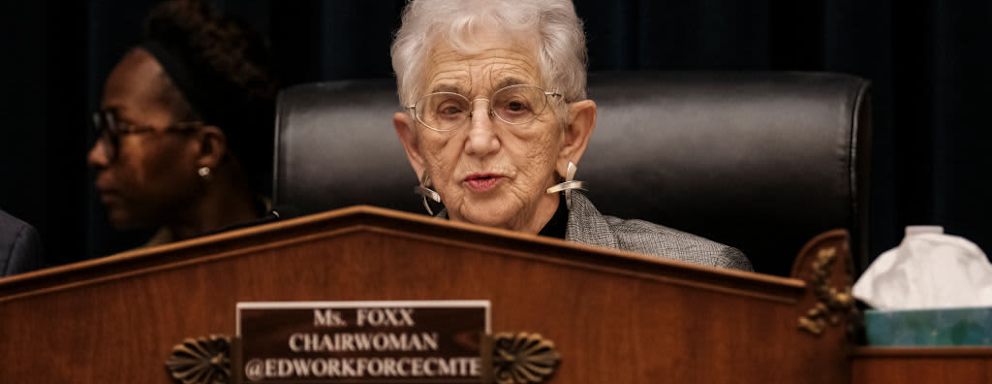Republican Lawmakers Oppose Expanding TRIO Programs to Undocumented Students
 Credit: Michael A. McCoy / Getty Images
Credit: Michael A. McCoy / Getty Images- The Biden administration crafted new regulations in March to expand TRIO eligibility.
- It included TRIO programs that prepare high schoolers to enroll in college.
- A handful of lawmakers say the regulations contradict rules set in the Higher Education Act.
Republicans in the U.S. House of Representatives are calling on President Joe Biden to rescind his proposal to expand TRIO programs to noncitizen and undocumented students.
The Department of Education (ED) recently put forth a new rule for public comment that would expand the country’s most prominent college prep grants to previously excluded student groups. Republican lawmakers, led by U.S. Rep. Virginia Foxx of North Carolina, called the proposal executive overreach in a recent letter.
The six lawmakers added that the Higher Education Act specifically states that students must be citizens or permanent residents — or be in the process of becoming citizens or permanent residents — to qualify for TRIO.
“Expanding the number of eligible students means that more students will compete for the same amount of resources, resulting in fewer resources distributed to low-income American citizens who are currently TRIO eligible,” the lawmakers wrote in a letter to ED.
U.S. Reps. Tim Walberg of Michigan, Glenn Grothman of Wisconsin, Jim Banks of Indiana, Burgess Owens of Utah, and Michael Rulli of Ohio co-signed the letter.
ED’s proposal would impact the following TRIO programs:
- Talent Search
- Educational Opportunity Centers
- Upward Bound
The department crafted the proposal through the negotiated rulemaking process, which brings higher education stakeholders together to change existing regulations. In March, negotiators called this an important step in increasing college access for noncitizens in the U.S.
“This is a pivotal moment for TRIO and the students that stand to benefit from gaining access to this life-changing support through these programs,” Magin Sanchez, a representative for civil rights organizations, said at the time.
A representative from ED said in March that the department felt it had the legal authority to amend TRIO regulations relating to college prep for high schoolers. The representative added that ED did not feel it could amend TRIO programs aimed at currently enrolled college students.
Upward Bound and Talent Search are TRIO programs that teach high school students about federal financial aid programs available in college, plus they provide tutoring. Educational Opportunity Centers provide counseling and admissions information to people applying to colleges or reenrolling in a program.
The Republican lawmakers worry that expanding eligibility means more low-income students will miss out on TRIO’s benefits.
“The department’s proposed rule … ignores the legislative intent of the [Higher Education Act] and will siphon resources away from currently eligible low-income American citizens,” the letter reads.
Lawmakers called on ED to withdraw its proposal. Instead, the letter states that ED should work with Congress to “enact clearer policies” and ensure that “only currently eligible students receive taxpayer-funded services.”
ED can amend regulations based on public comments, but it is not required to do so. This means ED can ultimately put forth a final rule exactly as is.